2014-2015 Series
September 11, 2014
Richard Schlegel, MD, PhD
Director, Center for Cell Reprogramming
Georgetown University Medical Center
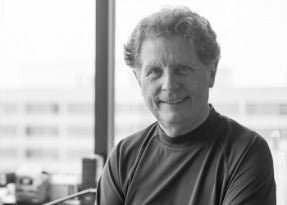
Dr. Richard Schlegel will be speaking at the first of the Seminar Series by introducing the Center and its components. He will be discussing the vision and mission of the Center as well as its future projects and goals. He will also be introducing the programs within the CCR and their respective Directors. We hope you will join us as we begin the first of our anticipated Seminars. View his presentation here.
October 9, 2014
Linda Resar, MD
The John Hopkins University School of Medicine

Dr. Resar is internationally recognized for pioneering studies on the role of High Mobility Group A (HMGA) genes in cancer and stem cells. Dr. Resar was the first to discover that HMGA genes function as potent oncogenes and a seminal paper describing this work was featured in Science magazine’s STRIKE publication (which cites papers of major significance). Her laboratory also engineered the first transgenic mouse model demonstrating that HMGA1 causes cancer in vivo. Using this model and others, Dr. Resar has gone on to elucidate molecular mechanisms through which HMGA genes function in human cancers and normal development. This work is important because HMGA proteins are key chromatin remodeling proteins and transcription factors enriched in all aggressive cancers and stem cells studied to date. Dr. Resar is committed to elucidating the pathways regulated by HMGA proteins in cancer and development in order to harness this knowledge for cancer therapy or regenerative medicine. Based on her productivity and innovative discoveries, Dr. Resar has garnered continuous NIH funding over the past 22 years.
November 13, 2014
Jeffrey Karp, PhD
Brigham and Women’s Hospital, Harvard Medical School
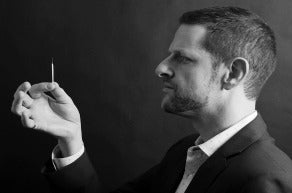
Dr. Jeff Karp is an Associate Professor at Brigham and Women’s Hospital, Harvard Medical School, and is Principal Faculty at the Harvard Stem Cell Institute and affiliate faculty at MIT through the Harvard-MIT Division of Health Sciences and Technology. His research harnesses materials science and stem cell biology to solve medical problems with emphasis on nanoscale/microscale materials and bio-inspired approaches. He has published more than 100 peer-reviewed papers and book chapters and has given over 140 national and international invited lectures and has 50 issued or pending patents. Several technologies that Dr. Karp has developed have formed the foundation for multiple products under development and for the launch of two companies, Gecko Biomedical and Skintifique. Dr. Karp’s work has been recognized by CNN, NPR Science Fridays, Boston Globe, ABC News, MSNBC, Fox News, CBC Quirks and Quarks, CanadaAM, BBC, LA Times, Forbes, National Geographic, Popular Science, the Washington Post, the New York Post, and by Wired Magazine. In 2011 the Boston Business Journal recognized Dr. Karp as a Champion in Healthcare Innovation and in 2013 the Institute for Chemical Engineers(IChemE) awarded one of his technologies at the Most Innovative Product of the Year. MIT’s Technology Review Magazine (TR35) also recognized Dr. Karp as being one of the top innovators in the world under the age of 35. He has received the Society for Biomaterials Young Investigator Award and his work has been selected as one of Popular Mechanic’s “Top 20 New Biotech Breakthroughs that Will Change Medicine”. Dr. Karp was also elected in 2013 to the American Institute for Medical and Biological Engineering’s College of Fellows and as a Kavli Fellow. Dr. Karp is also an acclaimed mentor. He was selected as the Outstanding Faculty Undergraduate Mentor among all Faculty at MIT and received the HST McMahon Mentoring award for being the top mentor among all faculty who mentor Harvard-MIT students. To date, 16 trainees from his laboratory have secured faculty positions at institutions throughout the world.
December 3, 2014*
Stuart S. Martin, PhD
University of Maryland School of Medicine
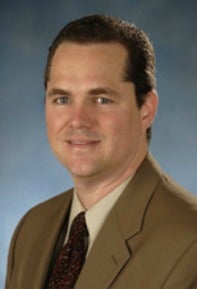
Dr. Stuart Martin is an Associate Professor of Physiology at the Greenbaum NCI Cancer Center, University of Maryland School of Medicine. Dr. Martin received his PhD from the University of California – San Diego in Biomedical Sciences, a program that combined molecular cell biology with pharmacology and physiology. As a graduate student with Dr. Jerry Olefsky, he focused on insulin-stimulated rearrangement of the actin cytoskeleton, and demonstrated that PI3-Kinase was sufficient to induce actin membrane ruffling and stress fiber breakdown. His current research focuses on apoptosis and breast tumor metastasis, functional genomic screening for metastatic regulators, and in vivo tumor imaging.
*This special lecture will be held on a Wednesday.
January 9, 2015*
Visiting Scientist Grand Rounds Lecture
Jeff Engelman, MD, PhD
Dana-Farber, Harvard Cancer Center
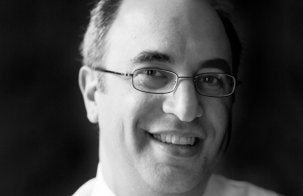
The overarching aim of research in the Engelman Laboratory is to develop new and more effective therapeutic strategies for the treatment of cancer, with a particular emphasis on lung cancer. Cancer therapies are changing from general chemotherapeutic agents to drugs that target specific proteins and signaling pathways (i.e., targeted therapies). Engelman laboratory aims to understand the biological underpinnings of cancer sensitivity and resistance to this emerging class of therapies. Dr. Engelman is particularly interested in the regulation of the PI3K pathway, a signaling network that is crucial for the growth and survival of many epithelial cancers. The ultimate goal of his research is to develop therapies that are more effective and less toxic for patients with cancer.
*This special lecture will be held on a Friday in the New Research Building Auditorium from 12:00pm – 1:00pm.
February 12, 2015
Yang Du, PhD
Uniformed Services University of the Health Sciences
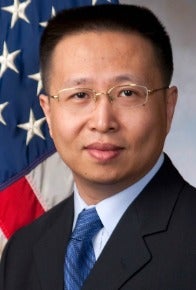
Growing evidence in the leukemia field supports the cancer stem cell model that leukemia is comprised of a heterogeneous population and only a fraction of the leukemic cells, known as leukemic stem cells (LSCs), are capable of sustaining and regenerating the disease. These immortalized LSCs possess unlimited self-renewal capability and can also differentiate spontaneously into more mature non-leukemic progenies that make up the bulk of the malignancy. LSCs can be derived from hematopoietic stem cells (HSCs) that normally have extensive self-renewal capability or from more mature progenitors that acquire such self-renewal potential through mutations. The clinical implication of this model is that LSCs have to be eliminated in order to eradicate leukemias. Since the hallmark of LSCs is their unlimited self-renewal capability, inhibition of LSC self-renewal represents a promising new strategy for treating leukemias. However, the molecular mechanism(s) controlling LSC self-renewal is poorly understood. Dr. Du and his lab have recently identified a set of candidate genes for regulating LSC self-renewal in myeloid leukemias in a retroviral insertional mutagenesis screen. Ectopic expression of these genes is able to confer unlimited self-renewal capability to murine myeloid progenitor cells in culture. One major focus in his lab is to confirm these genes as LSC self-renewal regulators by testing effects of their expression on the self-renewal potential and the transformation of normal murine myeloid progenitors in vivo. In order to understand the mechanisms that they regulate LSC self-renewal, expression profiling will be used to identify their downstream targets. Since extensive self-renewal capability is shared between LSCs and normal HSCs, genes identified in their screen may also play important roles in the self-renewal of normal HSCs. Therefore, Dr. Du and his lab are also taking a genetic approach to investigate this possibility by generating hematopoietic specific knockout mouse models for these candidates. Because their insertional mutagenesis screen makes use of retroviral vectors capable of infecting many different cell types, another area of resarch in the lab is to apply the same screening strategy outside of hematopoietic system to identify self-renewal regulators for other cancer stem cell types.
March 12, 2015
Frank B. Gertler, PhD
Koch Institute for Integrative Cancer Research at MIT
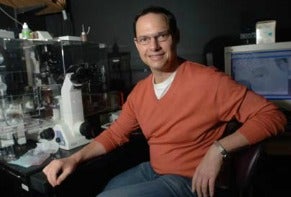
Dr. Gertler is a Professor of Biology at MIT. He received his Ph.D. in 1992 from the University of Wisconsin, Madison. He has been presented with the following honors: the American Society for Cell Biology’s Early Career Life Scientist Award (2003), The W.M. Keck Foundation’s Distinguished Young Scholars in Medical Research award (2000), and The McKnight Endowment Fund for Neuroscience’s McKnight Scholar Award (2000). Precise control of cell motility is essential for embryonic development and a wide variety of physiological and pathophysiological processes. Developmental defects, metastatic cancer and other diseases can result when regulation of cell movement is perturbed. He is interested in understanding how cell movement and changes in cell shape are controlled. Directed cell migration requires dynamic remodeling of the cytoskeleton in response to diverse arrays of diffusible and surface-bound extracellular signals. Dr. Gertler and his lab would like to understand how cells transduce environmental signals into the mechanical forces necessary to drive directed movement. His research program combines mouse genetics, cell biological and biochemical approaches to investigate the interplay between signal transduction pathways and the actin cytoskeleton, and to deduce the functional importance of these regulatory systems in organismal development and disease etiology. One focus of the lab involves the study of cell motility and the control of cellular protrusions. A related second focus involves studying migration of neurons and their growth cones, actin-rich structures that guide developing axons and dendrites to their targets. He utilizes fluorescence and time-lapse video microscopy of living cells and high-resolution electron microscopy to analyze and quantify these processes.
April 9, 2015
Charlotte Kuperwasser, PhD
Tufts University School of Medicine
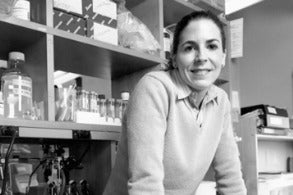
Dr. Kuperwasser’s lab is focused on understanding the various aspects of normal and carcinogenic breast development, with the emphasis on stromal-epithelial interactions involved during progression and metastasis. Her research studies the pathogenesis of this disease from the early stages of promotion to the later stages of invasion and metastasis.
May 14, 2015
Rosalie Sears, PhD
Oregon Health & Science University
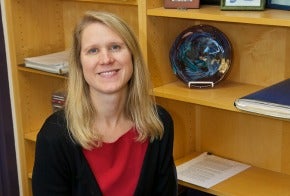
Dr. Rosalie Sears is a Full Professor in the Department of Molecular and Medical Genetics at the Oregon Health and Science University. She received her Bachelors degree in Biology from Reed College in 1986 and her PhD in Cell Biology from Vanderbilt University in 2003. Dr. Sears conducted her post doctoral studies at Duke University in the Genetics Department. She is the Translational Science Director of the Brenden-Colson Center for Pancreatic Care, and the GI Program Leader in the Knight Cancer Institute. The Sears lab is studying signaling pathways involved in the generation of human cancer. Disruption of these pathways alter the ability of a cell to control its proliferation as well as the initiation of programmed cell death (apoptosis). They are focusing on three key signaling pathways that regulate both cellular proliferation and apoptosis: the Myc transcription factor, the Ras signaling protein, and the G1 cyclin dependent kinase (Cdk)/retinoblastoma(Rb)/E2F pathway.
